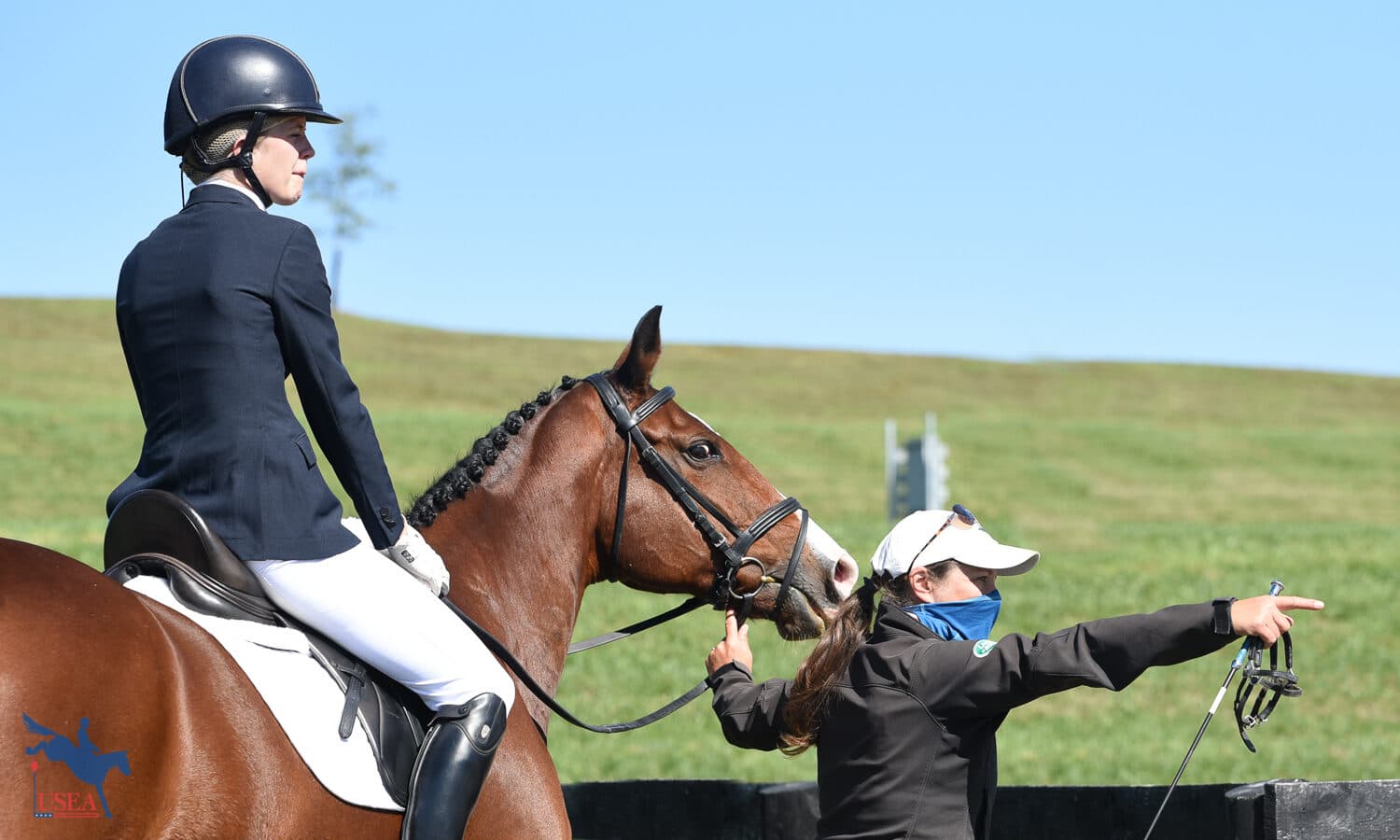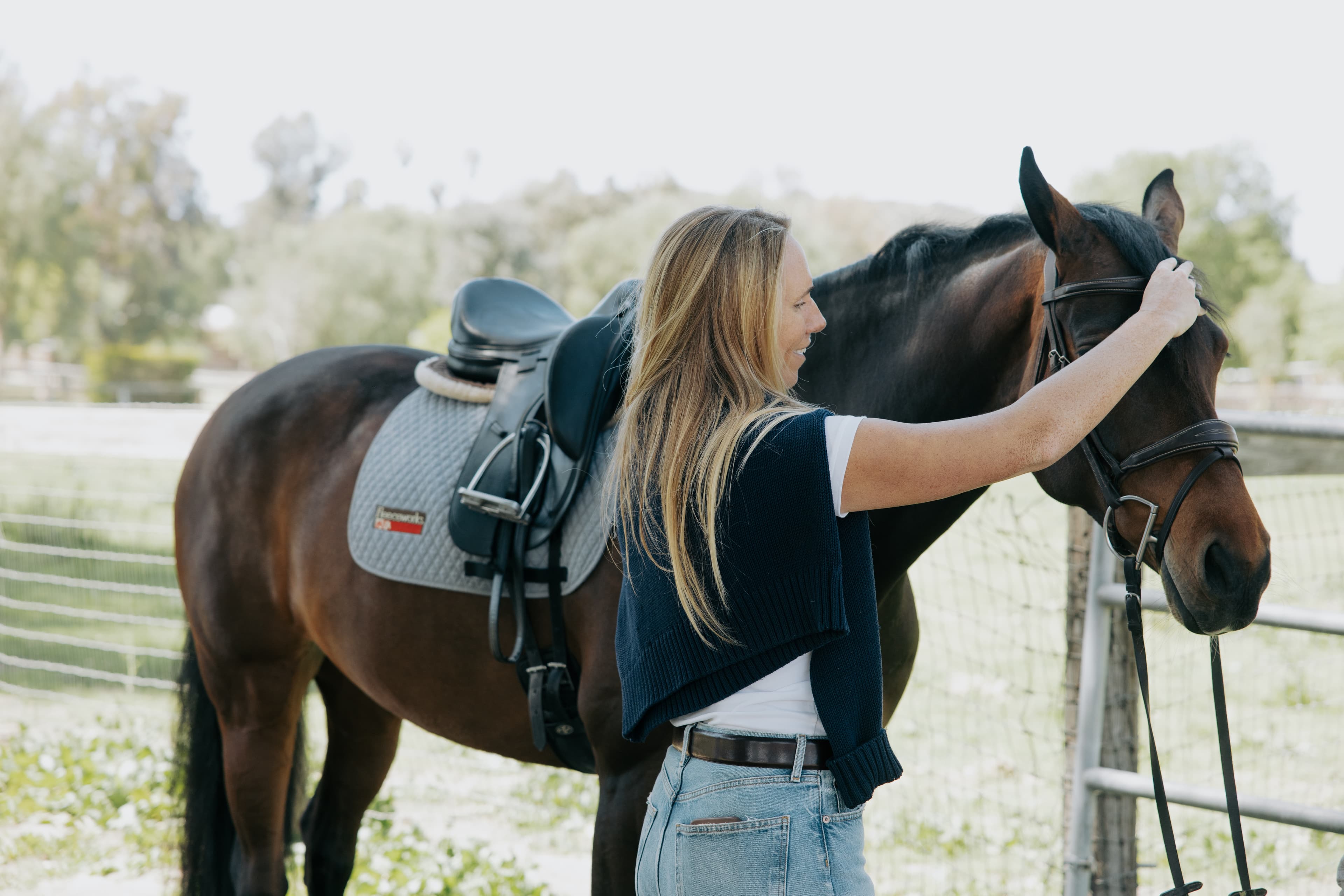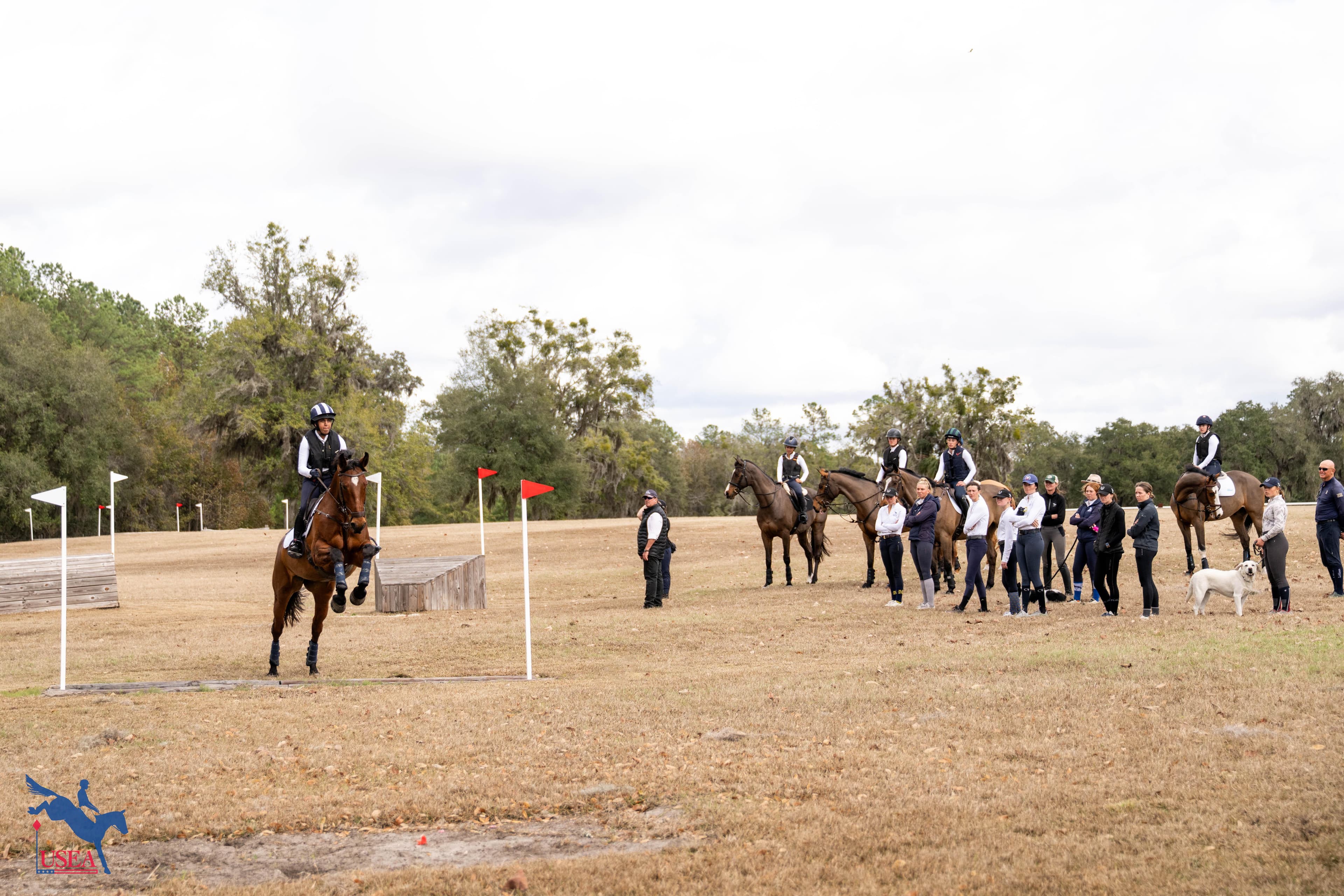Daniel Stewart's Tip of the Month: Feedback Rehearsals

Last month we began a conversation about riding rehearsals (visualizing your performance before your actual ride). While you probably already do some form of mental rehearsal (maybe waving your crop like a magic wand while “imagining” your ride), we spoke about several other unique ways to visualize your ride. For instance, you can visualize your ride as if looking out from your own eyes; as if watching yourself on TV; from above as if from a hovering drone; or even as if seeing your ride from the eyes of your horse. You can even combine them all together and create something called mental rotation.
Regardless of the technique(s) you use, riding rehearsals deserve a place in your mental toolbox because they allow you to practice skills, even at times when you can’t actually practice riding. What’s more, they can also help you practice skills that shouldn’t be practiced (like learning how to fall or reacting to a spook). I suppose falling over and over again is one way to get better at falling, but you might want to save yourself the time (and pain) by practicing it mentally!
This month I’m going to introduce you to the most unique - and complex - form of riding rehearsal. It’s called a feedback rehearsal and it doesn’t just help you become a better and more successful physical rider, it helps you become a better and more resilient mental rider.
Feedback (or biofeedback) rehearsals work in three stages:
- You become mindful of unwanted emotions like frustrations and fears,
- You identify (and mimic) the negative physical reactions that usually occur when you experience them (like holding your breath and tightening your muscles), and then
- You practice a series of new positive response skills that work to eliminate those unwanted emotions and reactions.
You can give feedback rehearsal a try right now. Begin by visualizing a challenging mental situation (like being afraid of falling or showing in front of a crowd). Once you’ve created the mental image, think of the negative physical reactions that usually occur when you experience it (i.e. holding your breath, hunching your shoulders, and tightening your muscles), and then purposefully hold your breath, hunch your shoulders, and tighten your muscles! Once you’ve created these stress-responses, spend a few short seconds really feeling them. Get to know them. How do they feel? How do they make you act? After these few mindful seconds, spend a full minute creating a new series of positive replacement behaviors to rid your body (and mind) of those unwanted emotions and reactions (like taking a few deep cleansing breaths, sitting tall and opening your shoulders, and relaxing your muscles).
It’s important to remember that the focus of a biofeedback rehearsal is always placed on the positive reaction to the negative action. You simply train yourself to identify the negative feedback from your body (i.e. becoming aware you’re holding your breath) as a way of triggering your mind to replace it (automatically) with a positive response (like taking deep cleansing breaths).
The idea behind this kind of riding rehearsal is that you get better at whatever you practice… so this month why not use biofeedback to get a little better at recognizing unwanted emotions and the physical reactions that accompany them; and replace them with more positive and appropriate ones! Just pick your problem (is it the nervousness caused by judges, spectators, losing, failure, mistakes, spooks, or falling?). Once you’ve found it… feel it and fix it!
I hope you enjoyed this month’s tip! Next month we’ll wrap up the subject of riding rehearsals, but until then feel free to email me at [email protected] if you’d like me to teach a Zoom webinar on equestrian sports psychology to your barn, school, or Association during the holidays or New Year!
Coach Daniel Stewart will be hosting a Zoom Webinar on the topic of equestrian sport psychology during the 2020 USEA Virtual Convention on Thursday, December 10 at 10:00 a.m. ET. To access Coach Stewart's webinar, click here.














